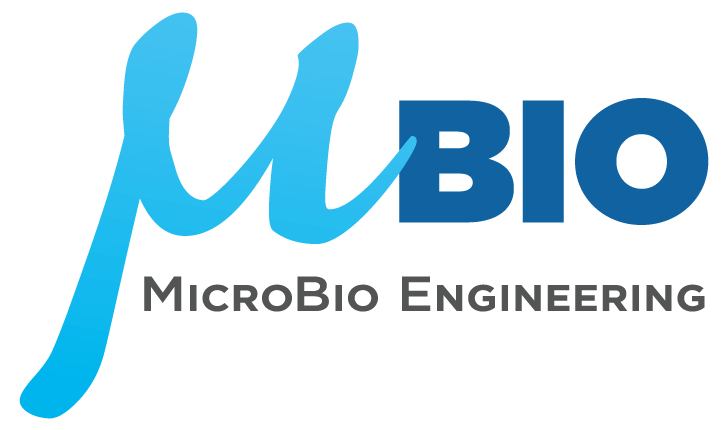MicroBio Engineering, Inc. is an engineering and technology company specializing in integrated processes for using microalgae to reclaim wastewater and produce biofuels.
Our algae-based systems allow communities and industries in warm climates to take advantage of their solar resource to recycle wastewater with lower cost and energy consumption than conventional treatment methods while reclaiming nutrients and producing algae biofuel feedstock.
In addition to collaborating with many clients on their own projects, MicroBio conducts a substantial research effort on its own technology: RNEW. The RNEW™ process uses open, mechanically mixed, raceway ponds with paddle wheel mixing (a design innovation first introduced into the U.S. by the PI during his earlier work on wastewater treatment technologies using microalgae.
The RNEW™ process is based on the fact that, for algal mass cultivation, municipal wastewaters are carbon-limited due to relatively high N and phosphorus concentrations. For example: in typical primary effluent (after settling), the C:N ratio is about 18:9, whereas the ratio of C:N in algae ranges from about two (N sufficient) to over five times this ratio (N limited cultures) at 18:1:0.1. Addition of CO2 to wastewaters would thus allow increased growth of algae to first an N limited stage and then to an N deficient stage, where oil induction would take place. Perhaps even more importantly, the phosphorous present in the wastewater could also be removed essentially entirely, even with rather large ratios of N:P ratios, as this ratio is rather flexible in algae cultures, contrary to the general supposition in the literature that algal C:N:P ratios are fixed.
In sunny climates, our technology has a major cost advantage over conventional wastewater technologies and algae feedstock production technologies. RNEW™ is a breakthrough that fits with the growing demand for sustainable technologies that are both environmentally-sound and less costly than the current alternatives.
Wastewater treatment as commonly practiced, in concrete tanks fitted with blowers and pumps, is an expensive, energy-intensive responsibility. Although treating wastewater benefits the water environment, the greenhouse gas impacts of treatment have come under scrutiny recently. In terms of cost, treating the wastewater of a modest-sized 50,000-person city to high standards requires $40-$60 million for construction and $3-$6 million per year for operation. RNEW™ provides a savings of 60%-75% of total costs (capital+O&M) compared to the most popular conventional technology (activated sludge). This savings is highly attractive to clients who have about 12 acres available per 10,000 residents. Where sufficient flat land is available, RNEW™ clearly should be included in every city’s treatment feasibility study.
General Wastewater Consulting
Retrofitting, upgrading, or replacing an existing wastewater treatment system can represent a significant capital cost. Maintenance costs and operating costs can also be significant, especially if the new system is a poor fit for the flows, water quality, or client. MicroBio Engineering Inc., offers a full-range of consulting services to evaluate wastewater flows, and quality as well as the client’s desires and independently and objectively recommend wastewater treatment systems or processes that will best fit the client’s needs. We have experience serving the following industries:
Winery and brewery wastewater treatment
Dairy and animal manure wastewater treatment
Municipal wastewater treatment
Food processing wastewater treatment
Industrial wastewater treatment








